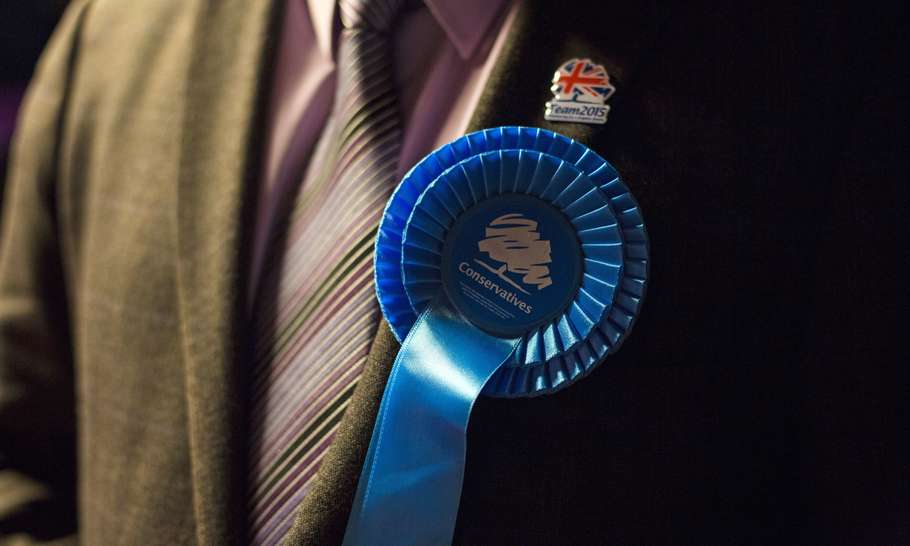Boris must learn that general elections aren't the same as referendums

JACK TAYLOR/AFP/Getty Images
This week, Boris Johnson has reiterated – in the strongest terms yet – that if he becomes Prime Minister, we are leaving the EU, Deal or No Deal, on 31st October. That means that unless he can get a Brexit Deal through the House of Commons within a month or two of moving into Number 10 – which, whatever he says, still seems vanishingly unlikely – he will start preparing for a No Deal Brexit.
When those preparations are held up by Parliament, as is inevitable given the arithmetic, the Government will crumble – defence minister Tobias Ellwood said last weekend that if Boris actively started pursuing no deal, some Conservatives would support a no-confidence motion against their own side – and a General Election will be called. The Tories under Boris will enthusiastically champion No Deal, swallowing up the Brexit Party, and Labour will either come off the fence and advocate a second referendum, or else be eaten alive by the resurgent Liberal Democrats. In all likelihood, in short, Britain will hold a proxy second referendum sooner rather than later.
What happens then? Well for now, at least, the momentum seems to be with the leave/Conservative side: Farage’s Brexit Party – which is advocating a No Deal – topped the YouGov voting intention poll for the fourth week running this Monday.
The problem, though, is that a General Election is not the same as a referendum. Yes, a No Deal supporting Conservative Party might well win a slightly higher share of the vote than a Remain supporting Labour Party, but under First Past the Post, translating those votes into a thumping majority (of the kind that would be needed to push through such a controversial Brexit policy) would be very tricky indeed. As we learnt in 2017, a Conservative Party which caters for “citizens of somewhere” – rural, elderly, Brexit voters – is capable of making big dents in Labour heartland strongholds, but, if it can’t also appeal to young, metropolitan liberals in places like Battersea, it will get egg on its face in Parliament.
In order to win back a majority in the House of Commons, Boris – or Hunt, who is catching up with the front runner in the polls and, whether he likes it or not, would also be facing a General Election sooner rather than later – will have to win back young metropolitan liberals, for whom “Conservative” is, once again, a dirty word.
Obviously, given the tight time frame, any promises made by the new Prime Minister will be little more than just that: promises. But for Boris in particular – a natural social liberal who is being monstered by the left wing media as a dangerous, Trumpian populist – policy vows which remind young people of the London mayor they knew and loved could go a very long way indeed.
So, what big, bold moves could the new Prime Minister promise which might change the Party’s electoral fortunes?
One option he may consider is putting his weight behind the legalisation of recreational cannabis. Since the partial legalisation of medical cannabis last year, the drug has been in the news pretty much every week – and it’s crystal clear from events like 420 and Extinction Rebellion that middle-class, metropolitan graduates are yearning for more reform. And that’s not the only incentive for Boris: from his Telegraph columns, it’s clear that the front runner would like to be a big spending Prime Minister – and according to a report by the IEA, legalising the cannabis industry could bring in a very handy c.£1 billion a year in tax revenues.
Another option would be proposing sweeping reforms to animal welfare laws. As Theresa May learnt to her cost in 2017 when she professed her support for fox hunting, a lot of people care deeply about animal welfare, and in London in particular – where veganism is in vogue among young people – any policy which promised a better life for animals would go down very well indeed.
What’s more, the new Prime Minister could use animal welfare as an inroad to converting reluctant Remainers to the Brexit cause: as Michael Gove deftly demonstrated as DEFRA secretary, the EU is far behind the UK when it comes to animal welfare (under EU laws, for instance, bullfighting and the production of foie gras are permitted) and freed from the bloc’s shackles, Britain would be able to crack down properly on cruelty.
Of course, both options have their downsides. Though legalising cannabis would attract Extinction Rebellion types, lower-middle class hardworking families living in places like Milton Keynes rarely have the time or inclination to take drugs, and see those who do as idle and spoilt. Both Boris and Hunt are already battling the posh, public school boy image, and legalising recreational cannabis could alienate them further from that base. Meanwhile, any reforms to animal welfare laws are likely to inconvenience British farmers, many of whom are already deeply sceptical about Brexit.
One way or another creating a new coalition of Conservative voters might well be the trickiest of the tricky challenges facing our new Prime Minister. But if Boris Johnson (or Jeremy Hunt) is serious about keeping Corbyn out of Number 10, he must offer a carrot or two to metropolitan liberals – and fast.





